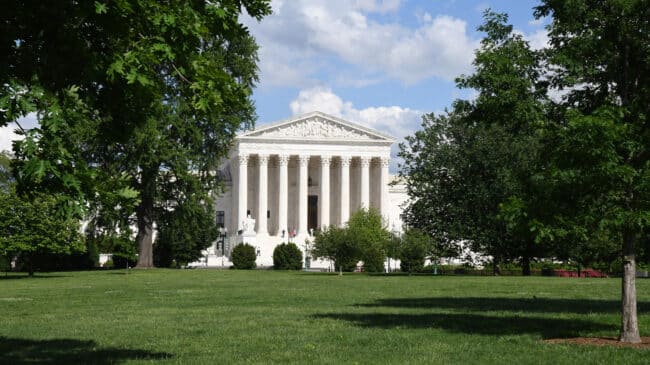No. 22-757
Supreme Court of the United States
JONATHAN ROBERTS and CHARLES VAVRUSKA, Petitioners,
v.
JAMES V. MCDONALD, in his official capacity as Commissioner for New York State Department of Health, et al., Respondents.
On Petition for Writ of Certiorari to the United States Court of Appeals for the Second Circuit
Brief Amicus Curiae of the Center For Equal Opportunity, The Kirkwood Institute, Manhattan Institute, and Reason Foundation in support of petitioners
Questions Presented
During the COVID-19 pandemic, the U.S. Food and Drug Administration granted emergency approval for lifesaving oral antiviral treatments, Facing a severe shortage of these treatments, the State of New York and New York City issued directives instructing medical providers to prioritize treatments to individuals on the basis of race.
Petitioners are New York City residents who are disadvantaged by the directives’ racial criteria. The Second Circuit held that being disadvantaged for lifesaving treatments on account of race was not an “actual or imminent” injury. It required Petitioners to show they were denied treatment on the basis of race. Because the antiviral treatments must be taken within five days of symptom onset, the lowers court’s decision effectively shields the government’s race-based directives from judicial review.
The questions presented are:
1. Whether plaintiffs’ injury is imminent where it flows from a predictable course of events that results from the defendant’s conduct.
2. Whether the Second Circuit’s ruling conflicts with Ne. Fla. Chapter of Assoc. Gen. Contractors of America v. City of Jacksonville, Fla., 508 U.S. 656, 666 (1993), which holds that the “injury in fact in an equal protection case” involving racial discrimination “is the denial of equal treatment resulting from the imposition of the barrier, not the ultimate inability to obtain the benefit.”
Summary of Argument
The Court has repeatedly held that those challenging a racial classification suffer an actual injury when they encounter a barrier that does not allow them to compete for public benefits on an equal footing. Petitioners further attested to their interest in obtaining the antiviral treatments if they became necessary. They thereby demonstrated both an actual and an imminent injury, which is sufficient to show standing. The lower courts’ decisions to the contrary are erroneous. Respondents’ plan to use race as a plus factor when distributing scarce antiviral treatments is plainly unconstitutional. The program does not serve a compelling state interest, so it fails strict scrutiny.
